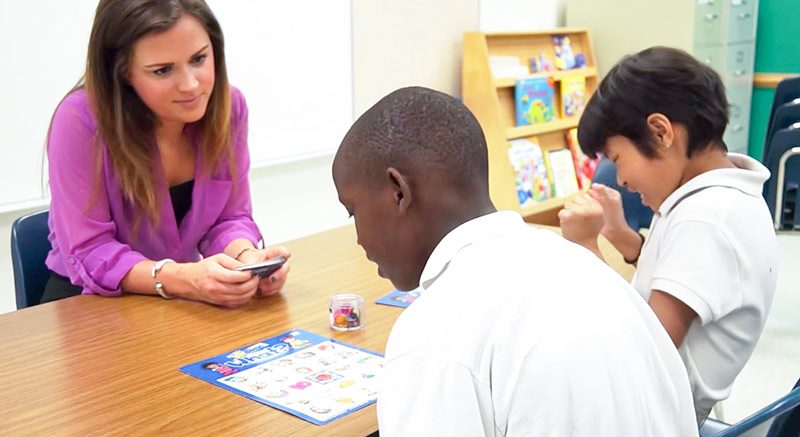May is all about our SLPs as we celebrate Better Hearing and Speech Month. It’s easy for the parent to just hand their toddler their smartphone or tablet and tap on an “age-appropriate” app, when they need to get some stuff done around the house or catch up on reality TV. But by doing this, the child’s emotional, speech/social development, and eyesight is becoming stunted. This article outlines how things like tablets & smartphones impact toddlers.
“Experts recommend against any use of smartphones and tablets by children younger than 2. This is because of the potential effects of the devices on the developing brain. Before the age of 2, the brain is growing. The child’s skull is not thick enough to endure usage of such devices without risk. Maxwell encourages parents to find objects that help stimulate a child’s hand-eye coordination, creativity, problem solving and deductive reasoning. Putting pencil or pen to paper engages thought process and fine motor function and helps form neurological pathways.” – Steven Moore at LV Review-Journal.
“If a child under the age of three is using a tablet, their interaction with the screen could negatively affect their development of skills. This will someday be needed for science and math. However, these same tablets have also been studied to show positive things. They have been shown to improve cognitive and literacy skills especially for children with Autism and ADHD.” – Patriarc: Emotional and social development are strongly impacted by smartphones and tablets
http://nspt4kids.com/therapy/smartphone-technology-and-language-development-pros-and-cons/
Above is an article outlines the Pros and Cons regarding Smartphone technology in a child’s daily routine. Below are some of the concerns associated with too much screen time. This can lead to lack of social skills, problem-solving, and language development.
- Smartphone apps promote passive learning and provide little opportunity for creativity, social interaction, problem-solving, sustained attention, ideation, and make-believe. All of these skills are foundational to development in children by promoting motor skills, language learning, problem-solving, and social skills.
- While Smartphone apps may encourage children to talk or practice sounds, they do not encourage children talk to an actual person. Language is a reciprocal social system, intended for communication between people. It’s critical that children learn to communicate with others in a reciprocal context.
- Smartphone apps do not promote the use of novel language. A critical part of language development includes the ability to arrange words into combinations, building sentences to communicate their thoughts and ideas.
- Smartphone applications offer little opportunity to learn social skills. Social skills include interpreting nonverbal cues, making eye-contact, initiating conversation, and responding to others.
- Practicing skills in context is critical. However, even though Smartphones teach children new skills, they do not offer opportunities for children to generalize these skills in a real-life context.
The article above is from ASHA’s website; it helps sum up my thoughts on the subject! Thanks to our SLPs, we can help diminish this issue! Happy Better Hearing and Speech Month! We love our SLPs!
Host Healthcare Travel Therapy
Browse through our extensive list of travel therapy jobs or call one of our friendly travel therapy recruiters at (844) 812-8094. We are here to help you to get started.










